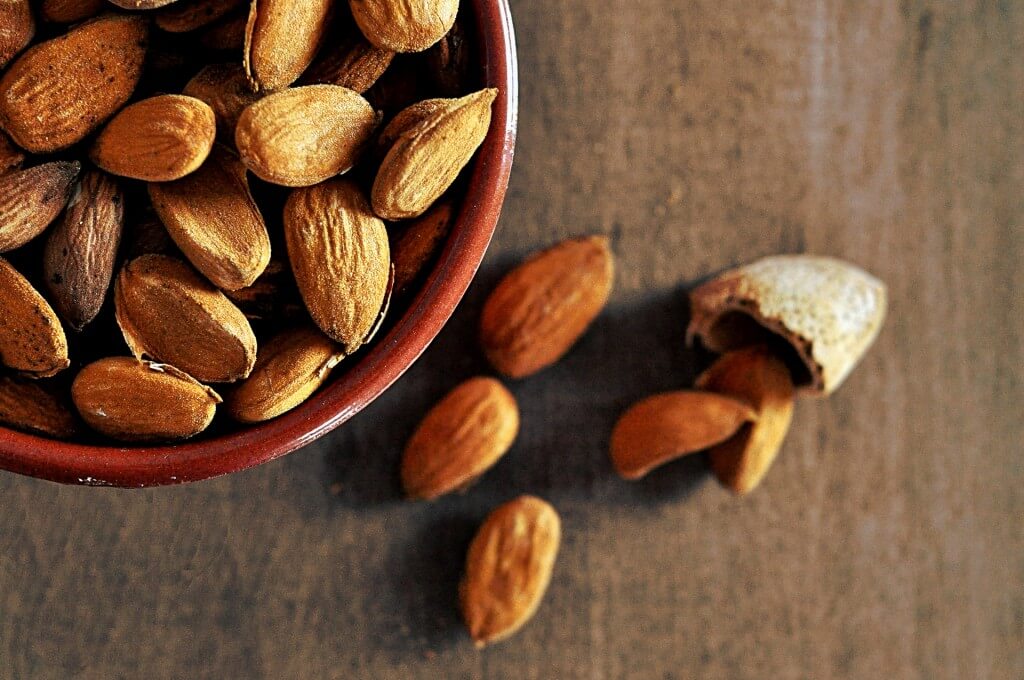What’s inside these tiny nutrient powerhouses?
Protein, fiber, vitamins, minerals, and even micronutrients such as antioxidants and phytochemicals (1).
Nuts are also chock-full of energy.
[adsanity id=2529 align=aligncenter /]
Each type of nut is different in it’s nutritional content, but provides between 23 -27 kg /g of energy. The fat content ranges from 45% to 75% of the weight of the nut.
Quite the body fat percentage. Nuts are obese.
Almonds, for instance are about 50% fat, while Macademia nuts can be as high as 76%.
Fortunately, most of the fat is unsaturated fat, which is proven to be healthier (2).
Despite this, the nut is criticized for its fat content. People, even smart health professionals, fear that eating nuts will make you fat.
[adsanity id=2529 align=aligncenter /]
Let’s dispel this myth.
One Harvard study (2) looked looked at data from the Nurses Health Study with over 116,000 females. The researchers analyzed 51,000 of the eligible females for nut consumption and weight change from 1991 to 1999.
The women gained about 11 pounds over the 8 years. Those who consumed more nuts had LESS weight gain. They gained about a pound (0.51 kg) less if they ate more than 2 servings of nuts per week. Those eating greater than 5 servings of nuts per week had even more weight loss (0.68 kg) compared to those who rarely ate nuts.
Eating nuts was PROTECTIVE against obesity.
A study in the New England Journal of Medicine (3) looked at over 120,000 men and women in three large groups of nurses and health professionals. For a period of 20 years, between 1986 and 2006, these men and women were followed and surveyed every 4 years about their diet.
Intake of nuts was associated with LESS weight gain.
Nuts are an important part of the Mediterranean Diet.
[adsanity id=2529 align=aligncenter /]
The SUN study (4) from Spain looked at University students to determine if higher nut consumption on a Mediterranean diet would lead to weight gain.
Over 8,000 participants were followed for 2 years. Questionnaires were used to study how many walnuts, almonds, hazelnuts and peanuts were consumed.
The students who ate nuts were 30% less likely to gain significant weight (defined as about 11 lb or more).
Studies following people over time suggests that nuts are protective against weight gain.
What would happen with a nut intervention?
The true test is to feed people nuts and watch what happens to their weight . . .an intervention trial.
Dr’s James Hollis and Richard Mattes from Purdue University (5) fed about a half-cup (344 calories) of Almonds to healthy subjects for 10 weeks.
The subjects did not gain weight.
In fact, there was no significant change in body weight, body fat percent, fat mass or fat free mass (such as muscle).
Another study out of Loma Linda University in California (6), supplemented diets with almonds for six months. The 81 participants consumed about 2 ounces of raw or dry-roasted almonds per day, yet did not gain significant weight.
An article in the American Journal of Clinical Nutrition (7) recently reviewed 31 of the strongest clinical trials on nut feeding.
Their conclusion?
There was NO effect on body weight, BMI or waist circumference.
Lastly, lets look at the strongest study to date.
A trial published in the Journal of Clinical Nutrition (8) looked at weight loss with a low calorie diet with almond consumption. There were 124 overweight or obese participants. They split them into two groups: low calorie diets with almonds and low calorie diet without almonds. The participants were followed for 18 months, making this the longest study available.
The almond group participants were given 28 grams of almonds to eat daily. More almonds were introduced over time with a goal of 56 g per day.
Both groups lost about 5% of their weight. There was no significant weight difference between those that consumed almonds and those that did not.
Eating almonds did not cause excess weight gain.
How could a fat nut NOT cause weight gain?
I’m glad you asked. There are several possible reasons:
#1 Nuts are full of protein and fiber
The protein and fiber content of nuts may help you feel full and beat back your hunger. Fiber may also cause slowing of gastric emptying, which could make you feel full longer
#2 Nuts are full of mono and poly-unsaturated fat
These fats are associated with easier fat breakdown (known as fatty oxidation), which may lead to less fat sticking to your waistline.
#3 Nuts may simply burn energy
The protein, fiber and fat of the nut may increase energy expenditure as well as the “thermic effect of food.” This is where the body burns energy to process the food.
#4 The fat in the nuts may not be absorbed
Studies have shown that almonds form tiny capsules of fat that do not get absorbed by the bowels (9). The fat simply passes though, if you know what I mean.
So, we have plausible biological explanations, large population-based observational studies and even small feeding studies supporting that eating nuts does NOT lead to weight gain.
We haven’t even touched on the health benefits of nuts. A recent New England Journal article suggest Nuts may save your life (10).
But that’s a story for another time.
So, how are nuts for weight loss?
In a nutshell . . . eat ‘em up.
The Evidence (resources):
Image Credit: Almonds by Dorte Fjalland from 500px.com
